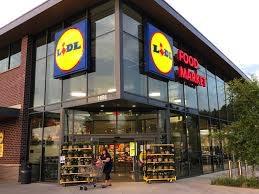 The Albert Schweitzer Foundation an extremist entity advocating for a vegan lifestyle and therefore opposed to intensive livestock production, has initiated a campaign against grocery chain Lidl in Europe. The Albert Schweitzer Foundation supported by activist groups Open Cages, and the Animal Welfare Observatory collected retail chicken on display from 22 Lidl stores in Italy, Spain, Great Britain and Poland.
The Albert Schweitzer Foundation an extremist entity advocating for a vegan lifestyle and therefore opposed to intensive livestock production, has initiated a campaign against grocery chain Lidl in Europe. The Albert Schweitzer Foundation supported by activist groups Open Cages, and the Animal Welfare Observatory collected retail chicken on display from 22 Lidl stores in Italy, Spain, Great Britain and Poland.
Samples were obtained from each store and were assayed for foodborne bacterial pathogens: -
- Salmonella was isolated from 9 percent of 94 samples in the E.U.
- Listeria (species not revealed) was detected in one third of samples in the E.U., a surprisingly high level.
- Campylobacter was found in 32 of 48 samples, with a 50 percent recovery rate from Germany, a not unexpected finding
- In contrast, the results in the U.K. yielded 12 out of 40 samples positive for Listeria but the laboratory was unable to demonstrate the presence of either Salmonella or Campylobacter, a surprising result.
- A third of the chicken samples from Germany yielded methicillin-resistant Staphylococcus aureus (MRSA) and with samples from Spain, demonstrating a 71 percent contamination rate with the pathogen.
The results were used by the Albert Schweitzer Foundation to coerce Lidl into adopting “better chicken farming across the board”. It is generally accepted that welfare organizations in the E.U. are attempting to force retailers and food service companies to source chicken from suppliers conforming to the “Better Chicken Commitment”. The standards required impose a higher cost of production, presumably to be passed down to consumers. It is unclear how increasing space requirements for birds on litter or providing enrichments will reduce bacterial contamination on RTC products.
 In commenting on the results of the assay conducted by the Albert Schweitzer Foundation, the Food Safety Agency of the U.K. emphasized long-standing recommendations that chicken and other meats should be cooked before consumption and not consumed raw.
In commenting on the results of the assay conducted by the Albert Schweitzer Foundation, the Food Safety Agency of the U.K. emphasized long-standing recommendations that chicken and other meats should be cooked before consumption and not consumed raw.
Lidl issued a statement of clarification, noting “We work closely with our suppliers and a multitude of industry partners aligning our policies with the Responsible Use of Medicines in Agriculture Alliance and the Food Industry Initiative on Antimicrobials to ensure the responsible application of recommended use of antibiotics when ensuring animal welfare remains a priority.”
The statement continued, “Our own testing shows that in the last twelve months there have not been any microbial-related deviations outside legal levels and no concerns have been raised to us by any regulatory bodies on this topic”.
Lidl welcomed opponents to provide “real and verified concerns regarding the alleged presence of pathogens”.
The assays commissioned by the activist group should not be taken as representative of bacterial contamination of chicken in the E.U. or the U.K.in chicken marketed by Lidl or any other chain. Specifically, levels of Listeria and MRSA are inconsistent with established industry values.